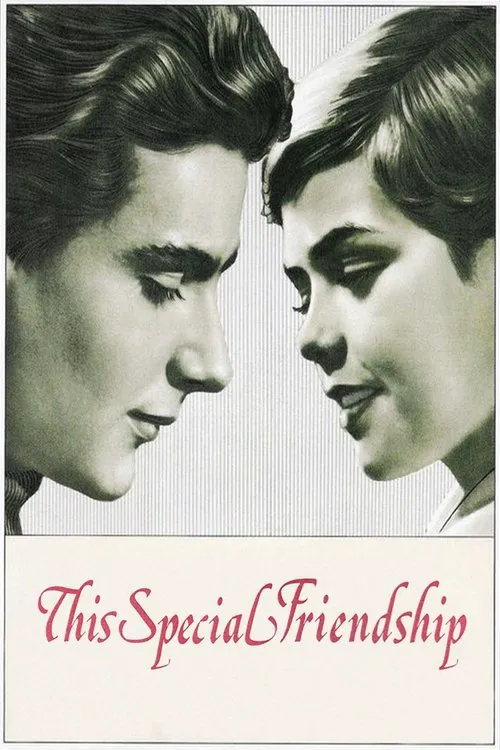This Special Friendship

Trama
In 1960s Spain, the country is still recovering from the brutal aftermath of the Spanish Civil War, and the strict, conservative values of the Jesuits have taken a dominant hold on the educational system. Against this backdrop of societal oppression and conformity, the story unfolds of a tender, albeit complicated, friendship between two young boys: twelve-year-old Carlos and fourteen-year-old Juan. Set within the rigid, austere walls of a Jesuit-run school, the film explores the intricate web of relationships, desires, and societal expectations that bind these two characters, as well as their peers. As Carlos, a sensitive and creative young boy, navigates the complexities of adolescence, he finds himself drawn to Juan, his upperclassman and an object of his desire. Juan, a charming and popular student, has been assigned to look after Carlos and act as his mentor, as per the school's tradition of pairing younger students with older, more experienced classmates. Initially, Juan seems like the perfect older brother figure to Carlos: attentive, supportive, and genuinely invested in helping him adjust to the new school environment. However, as their bond deepens, subtle hints of a forbidden affection begin to reveal themselves, threatening to disrupt the delicate balance of their friendship and the strict societal norms they inhabit. Throughout the film, Carlos's innocent curiosity and Juan's carefully guarded emotions create a poignant, slow-burning tension that hangs precariously in the balance. As they spend more time together, they begin to share confidences, secrets, and moments of tender intimacy, their connection growing stronger despite the odds against them. Yet, with every stolen glance, whispered conversation, or fleeting touch, they're forced to confront the harsh reality of their circumstances: a strict, conservative society that disapproves of same-sex desire and will punish it mercilessly. The director's deliberate pacing and cinematography masterfully capture the claustrophobic, suffocating atmosphere of the Jesuit-run school, where students are expected to conform to a narrow, rigid code of behavior and suppress any personal desires or feelings deemed "improper." Shot in muted colors and stark lighting, the film's aesthetic creates a haunting, almost surreal quality that echoes the sense of confinement and suffocation felt by Carlos and Juan. As they navigate the treacherous waters of adolescent desire, the boys are confronted by the cruel reality of societal expectations: a reality where "proper" boys are expected to be chaste, manly, and unemotional, while "improper" behaviors, such as same-sex attraction, are met with shame, ostracization, and brutal punishment. Against this backdrop, the director skillfully weaves a narrative that is both a poignant coming-of-age story and a searing indictment of the societal norms that perpetuate suffering and silencing. Through the characters of Carlos and Juan, the film sheds light on the complexities of adolescent desire, the fragility of male relationships, and the devastating consequences of suppressing true emotions in the face of societal expectations. At the same time, it offers a testament to the power of love and companionship to transcend even the most oppressive of circumstances. Throughout its exploration of this tender, special friendship, the film reminds us that the human experience is marked by a multitude of complexities, desires, and emotions that cannot be reduced to simplistic definitions or expectations. It's a testament to the power of storytelling to humanize, to challenge societal norms, and to offer solace to those who have been silenced, marginalized, or oppressed.
Recensioni
Raccomandazioni




